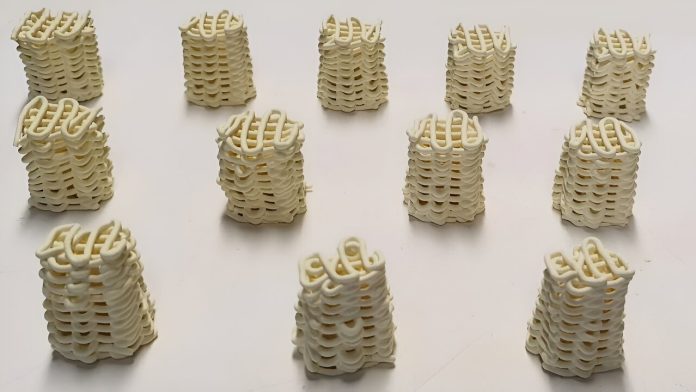
Engineers at the University of Bath have developed a new method to remove harmful ‘forever chemicals’ from water using 3D printing.
These chemicals, known as perfluoroalkyl and polyfluoroalkyl substances (PFAS), can cause various health issues, including reproductive, developmental, and cardiovascular problems, as well as an increased risk of diabetes.
PFAS are found in everyday products like non-stick pans, raincoats, paints, fabrics, and firefighting foams.
The researchers’ method involves using 3D-printed ceramic-infused structures called monoliths. These monoliths can remove at least 75% of perfluorooctanoic acid (PFOA), one of the most common PFAS, from water.
Their findings were published in the Chemical Engineering Journal.
Dr. Liana Zoumpouli, a Research Associate at Bath’s Department of Chemical Engineering, explains, “PFAS, or forever chemicals, are a major focus in water treatment and public health. We have created an efficient way to remove these chemicals from water without using lots of energy.”
The process is simple and scalable. The researchers use 3D printing to create monoliths with a high surface area, which is key to their effectiveness. Made from ceramic-infused ink, the 4cm monoliths are formed into a lattice shape by extruding the ink from a 3D printer. Because the ceramic, indium oxide, bonds with PFAS, the chemicals stick to the monoliths and can be removed from the water in under three hours. This method is compatible with current water treatment plants.
While regulations on PFAS in drinking water are increasing, especially in the US and EU, the UK currently has guidelines but no strong regulations. Co-author Professor Davide Mattia expects changes in policy soon and believes water companies will need to integrate systems to address these chemicals.
Testing has shown that the monoliths not only remove 75% of PFAS from water but also become more effective with repeated use.
The researchers subject the monoliths to high-temperature thermal ‘regeneration’ treatment after each use, which surprisingly improves their efficiency. The team is keen to understand this process better through further experimentation.
This new method offers a promising solution for removing harmful ‘forever chemicals’ from water, potentially making water safer for everyone. The researchers are excited to develop this technology further and see it used in real-world applications.



